Towards 2020
Making breakfast for millions takes more than great ingredients and great people. Water, energy and packaging materials are all vital parts of the process too. With the world’s populations set to increase to 9 billions by 2050, we’re working hard to reduce, reuse and recycle where ever we can, so we can continue making breakfast for millions of people for many years to come.
Our new 2020 Sustainability Commitments support the livelihoods of the farmers who nurture our ingredients at the start of the journey, as well as the natural environments where our ingredients are grown and our foods are made.
‘Read our latest report to learn more about out commitment to sustainability and the progress we are making around the world:
Corporate Responsibility Report (pdf)
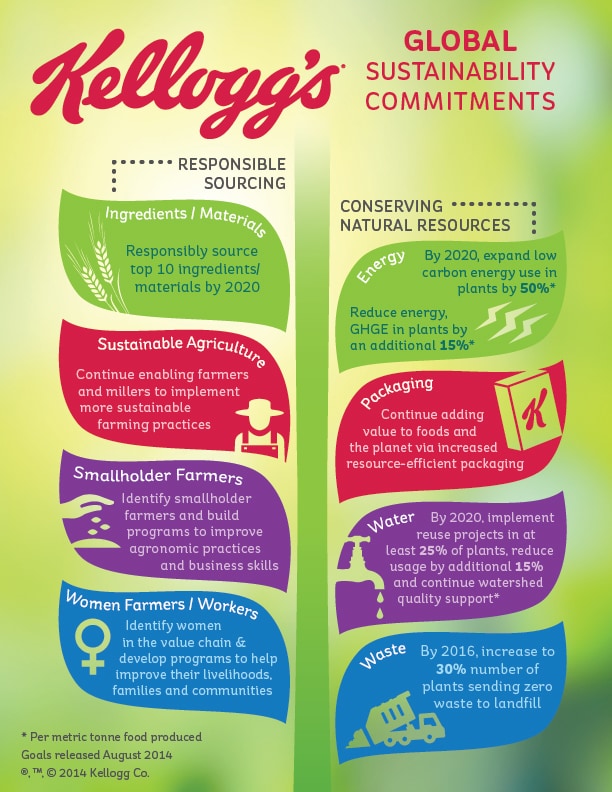
Making great strides
We’re making big progress already. We’re proud of our Kellogg’s UK employees for figuring out how to take 10 trucks a day off your roads, and how to make sure all our UK plants send 0% waste to landfill.
Our cereal plant in Manchester has now reduced its water use by >50% since 2005 by installing a reverse osmosis system. And because we believe in giving our grains the best start, we founded The Kellogg’s Origins™ Programme which works with a community of grain farmers across Europe, promoting more sustainable and natural farming practices to help protect the special places where our grains are grown and harvested, year on year.
Responsible Sourcing
Supporting the environment and the livelihoods of farmers and communities that rely on us and whom we depend
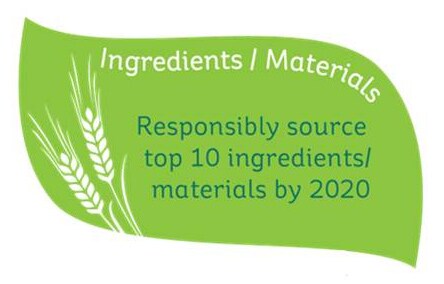
We’re committed to responsibly source to our top 10 ingredients by 2020 through a combination of certification or direct investment in programmes on the ground. The ingredients are corn, wheat, rice, potatoes, sugar (beet and cane), cocoa, palm oil, fruits (berries, raisins/sultanas) and vanilla.
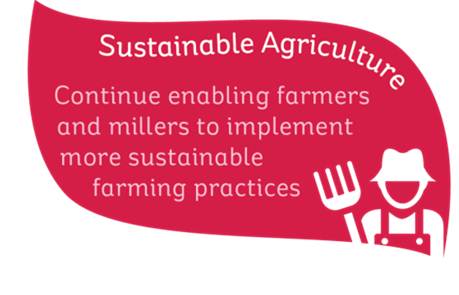
We are proud to source whole rice, wheat, oats and barley which are grown across Europe with the highest quality standards. We partner closely with millers and farmers throughout the region to drive sustainability improvements and continue to drive the traceability and transparency of our ingredients. Find out more about the Kellogg’s Origins tm Programme
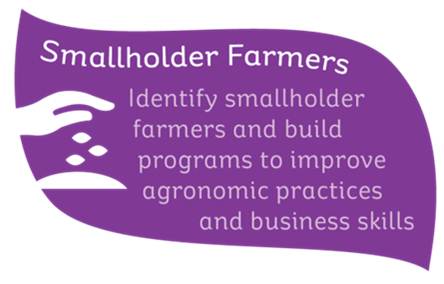
In Asia, Africa and South America, Kellogg works with partners that provide resources and training to smallholder farmers, improving their farming practices, productivity and livelihood. We’ve made a commitment to support the livelihoods of 15,000 smallholder farmers by 2020.
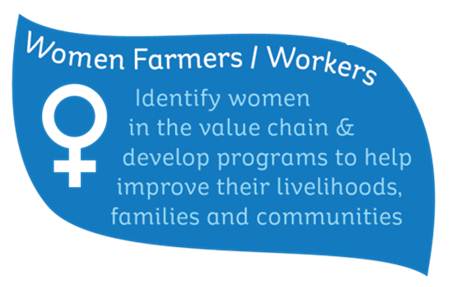
Kellogg has partnered with ASDA, Cargill and CARE in Cote d’Ivoire to provide better access to training for women in cocoa farming communities. Supporting women farmers not only directly benefits them, but it also creates a positive ripple effect for their families and communities.
Find out more about the progress we’ve made towards our commitments and about Kellogg commitment to sustainability.
Conserving Natural Resources
Conserving natural resources where our ingredients are sourced and our foods are made.
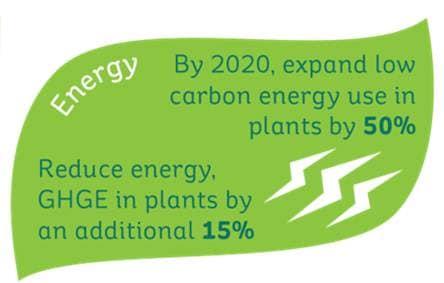
Kellogg is working on multiple fronts to further reduce our greenhouse gas emissions (GHGE) in our own facilities. For example our Bremen plant in Germany has reduced its GHGE by >20% since 2005.
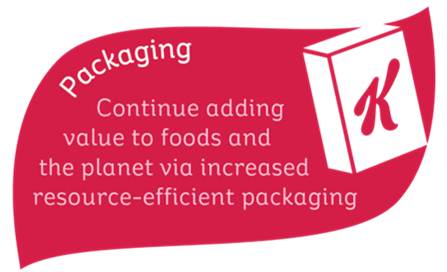
The paperboard of our cereal boxes have been made with recycled content since 1906. In 2012, 84 percent of our food cartons globally were made from recycled fiber content. Of the forest-product-based packaging material we use that is not recycled, more than 99% is made from certified sustainably grown virgin fibre.
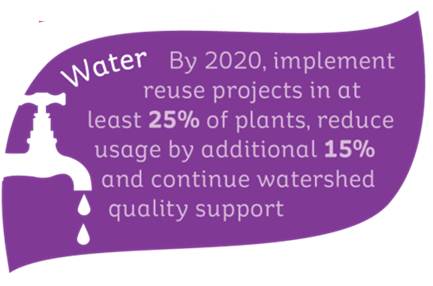
Across our European manufacturing facilities we have achieved >30% reduction in water use compared to 2005. At our Manchester, manufacturing plant, they reduced water use by >50% by investing in new technology that recycles water for reuse.
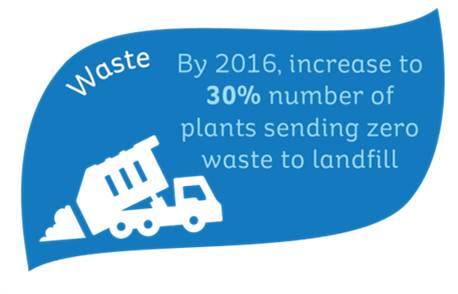
All of our Kellogg-owned European manufacturing sites* send zero waste to landfill. Kutno, Poland, was designed to be a zero waste to landfill from the start. This success belongs to all Kutno employees who, took full ownership of segregating waste.
*Excluding Russia




